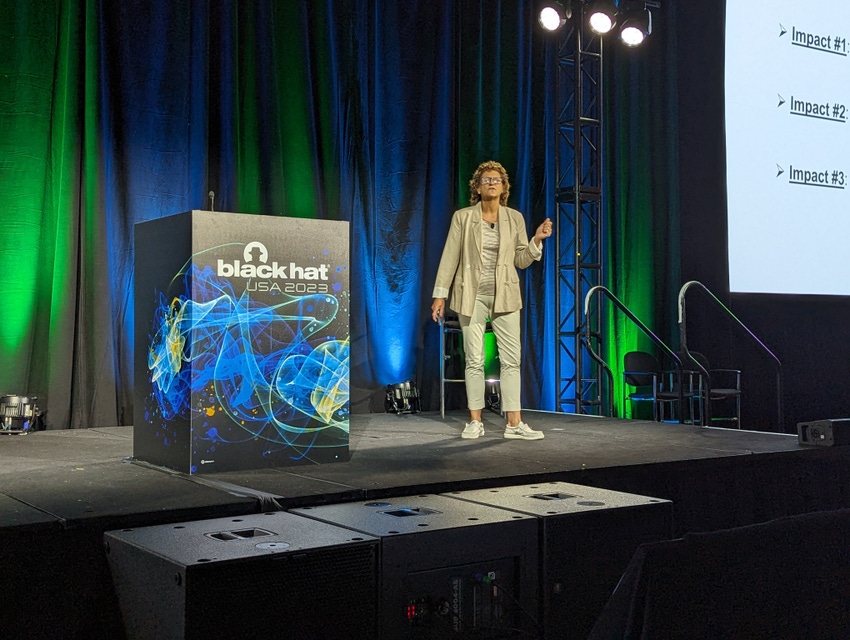NSA: Codebreaker Challenge Helps Drive Cybersecurity Education
The US National Security Agency aims to attract students to cybersecurity in general and its own open positions in particular: 3,000 new jobs this year.
August 11, 2023

BLACK HAT USA – Las Vegas — Thursday, Aug. 10 — According to the US National Security Agency (NSA), its cybersecurity outreach efforts with high school and college and university students has helped shape cyber curriculum in schools, as well as led to more students applying to work for the agency.
Rita Doerr, academic outreach lead at the NSA's cybersecurity directorate, here today said that the NSA has gone from being known as "No Such Agency" to now, where she regularly attends career fairs and hiring events and has to handle questions like "what exactly does the NSA do?"
"We decided that we needed some unclassified way to explain what our NSA cyber analysts do on a daily basis," she said.
Enter the Codebreaker Challenge
Doerr said hundreds of schools and universities have entered and participated in the Codebreaker Challenge, an event designed to provide participants with realistic challenges, including dealing with ransomware, reverse-engineering a rogue mobile application, and tracking surveillance footage. The Challenge also included the opportunity to use NSA's own Ghidra reverse-engineering tool, which the agency released at RSA Conference in 2019.
She said the skills developed in the 2022 challenge included forensics, binary reverse engineering, Web analysis and exploitation, cryptanalysis, and software development.
"We wanted this challenge to be able to have folks showcase their current skills in cyber and computer science, and be able to learn and grasp new skills and challenges," Doerr said.
As a result of NSA's outreach, high school, middle school, and college students participated in the Codebreaker Challenge in 2022, which Doerr said was "phenomenal" since typically the Codebreaker Challenge attracts older participants and college students.
"So high school students are becoming more tech-savvy, which is wonderful. Schools are suggesting that lessons learned in those skills — that the NSA is trying to hone in on — schools are making sure that they have requisite computer science and cyber courses, that cover those skills," she said. "If not, they are creating special courses in those topic areas."
The New Challenge
This year's Codebreaker Challenge will center around a simulation in which the US Coast Guard identifies a signal about 30 miles off the coast of the continental US; participants will be asked to interpret and find the origin of the signal. The event will launch on Sept. 28 and end on Dec. 21.
The Codebreaker Challenge is no longer mainly a way of instructing college and university students about what NSA does, Doerr said. "There are high school students and, as sure as I'm standing here, probably some really tech-savvy middle school students who are participating," she said.
"The Codebreaker Challenges are driving the cybersecurity computer science curriculum, which makes my heart happy," she said.
Hopefully that bodes well for building a skilled workforce: The NSA has a goal this year of hiring 3,000 cybersecurity professionals.
Read more about:
Black Hat NewsAbout the Author(s)
You May Also Like
Beyond Spam Filters and Firewalls: Preventing Business Email Compromises in the Modern Enterprise
April 30, 2024Key Findings from the State of AppSec Report 2024
May 7, 2024Is AI Identifying Threats to Your Network?
May 14, 2024Where and Why Threat Intelligence Makes Sense for Your Enterprise Security Strategy
May 15, 2024Safeguarding Political Campaigns: Defending Against Mass Phishing Attacks
May 16, 2024
Black Hat USA - August 3-8 - Learn More
August 3, 2024Cybersecurity's Hottest New Technologies: What You Need To Know
March 21, 2024




